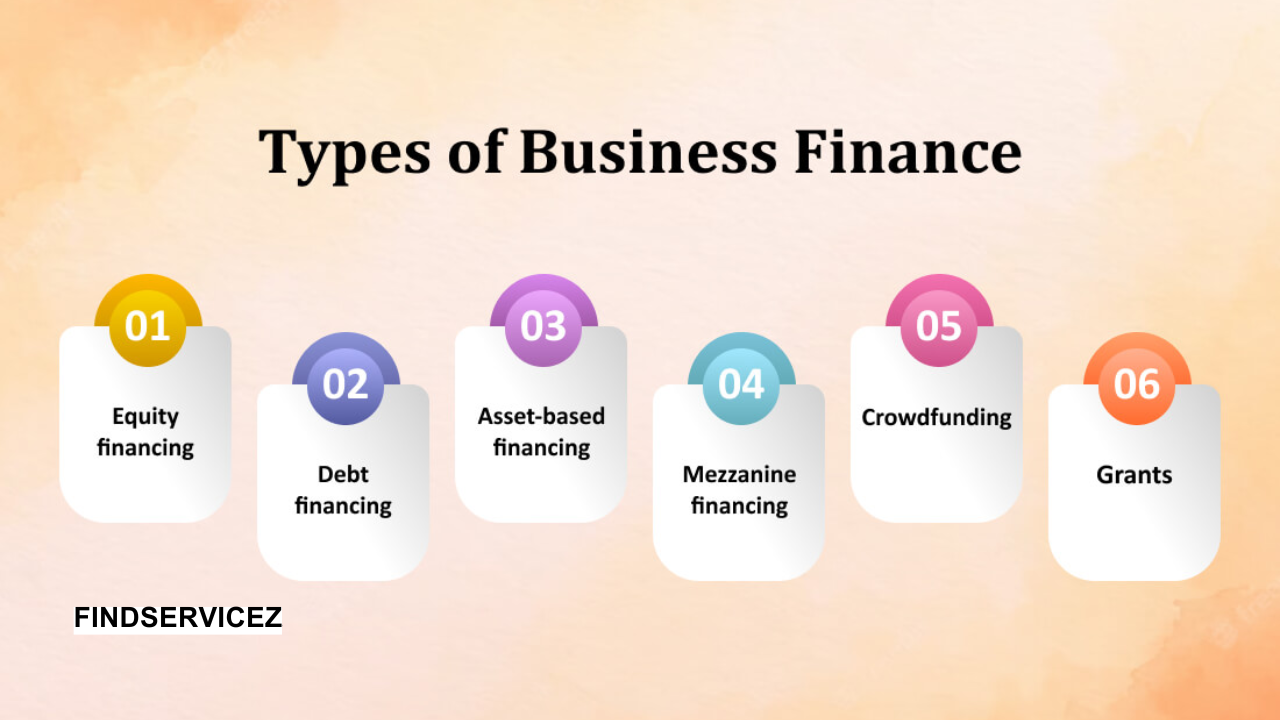Managing business finances is essential to ensure a company remains profitable, sustainable, and capable of growth. Financial decisions shape the course of your business, and understanding how to manage money efficiently can help you avoid costly mistakes. If you’re struggling to keep up with business finances or want to ensure you’re making the most of your resources, this guide will walk you through key steps on how to manage your business finances like a pro.
1. Establish Clear Financial Goals
Every business needs to have financial goals that guide its growth and development. Setting clear goals helps you align financial decision-making with the overall vision of your business. These objectives can range from short-term cash flow management to long-term financial sustainability, expansion, or strategic investments. To establish these goals:
- Assess your business’s current financial situation: Before setting goals, take time to understand where you stand. Review profit margins, cash flow, expenses, liabilities, and debt.
- Make goals SMART (Specific, Measurable, Achievable, Relevant, Time-bound): Break your financial objectives down into smaller steps. For example, a goal could be increasing net income by 15% within the next year, reducing overhead costs by 5% in the next six months, or securing external investment by year-end.

By laying out measurable milestones and tracking progress regularly, you can focus on enhancing profitability, growth, and efficiency.
2. Keep Accurate Records and Use Accounting Software
Maintaining accurate and up-to-date financial records is vital. Proper record-keeping not only supports tax compliance but helps provide a clear picture of your cash flow, debts, and financial health. Automating this process with accounting software or hiring an accountant can prevent mistakes and ensure consistency.
3. Build a Solid Business Budget
A detailed business budget is the cornerstone of managing finances effectively. When creating your budget, consider the following:
- Income Sources: Identify all streams of revenue your business relies on, including sales, services, and recurring revenue.
- Fixed Costs: List all regular expenses, such as rent, utilities, insurance, and wages, that must be paid irrespective of business performance.
- Variable Costs: These include costs that fluctuate depending on the production or sales volume, like raw materials or marketing expenditures.
- Unexpected Costs: Allocate funds for unforeseen expenses to minimize their impact.
Once you have a detailed budget, you’ll have a comprehensive view of where your money goes each month. Additionally, you’ll be able to compare forecasts against actual performance, which aids in determining potential areas for cost cutting or areas in need of extra investment.
4. Understand Your Cash Flow
Cash flow refers to the amount of cash that comes in and out of your business during a certain period. Positive cash flow means you have enough liquidity to meet operating expenses, pay down debts, or invest in opportunities for growth.
To effectively manage cash flow:
- Track it regularly: Monitor and compare your actual cash flow with projected figures.
- Forecast cash flow: Use past data and expected market changes to project your future cash flow needs and potential gaps.
- Know when cash shortages might occur: Look at slow-paying customers or seasonal sales declines that might impact liquidity.
Being able to predict and manage cash flow can keep your business from facing sudden financial crises.
5. Control Your Costs and Overheads
One way to improve profitability is to focus on controlling costs. While businesses focus a lot on generating revenue, managing expenses is equally important. Constantly assess your business’s costs to determine if there are areas to trim. Ways to manage overhead efficiently include:
- Outsourcing non-core tasks: If you can reduce the cost of non-essential tasks through outsourcing or automation, it can help keep your core operations running smoothly.
- Negotiate with suppliers: Regularly renegotiate pricing and payment terms to get the best deal. Bulk orders or longer payment terms may also reduce costs.
- Investing in technology: Streamlining processes with software can increase productivity while lowering labor and administrative costs. Tools such as cloud accounting or CRM systems can save time and reduce human error.
Staying focused on cost management without compromising on quality ensures that profitability doesn’t get eaten up by excessive spending.
6. Manage Your Debts Effectively
Debt is an unavoidable part of running a business, especially for startups and growing companies. Whether it’s small loans or lines of credit, managing your debts efficiently is important to maintain a good financial position.
- Avoid overleveraging: Don’t borrow more than your business can repay. Take loans only when it is a sensible move for expansion, not out of desperation.
- Make timely payments: Missing payments can lead to penalties, damaged credit scores, and higher future borrowing costs.
- Refinance debt when necessary: Look for opportunities to refinance loans at a lower interest rate or consolidate debt to save on monthly repayments.
Keeping your business debt-free or ensuring it remains under control is critical for long-term financial health.

7. Separate Business and Personal Finances
One common mistake that entrepreneurs make is mixing business and personal finances. This often leads to confusion, errors, and could jeopardize your business’s legal structure. Separate your personal and business accounts to make bookkeeping easier, ensure tax compliance, and protect personal assets.
- Open a business bank account: Use it exclusively for business transactions to simplify financial management and ensure compliance with legal requirements.
- Pay yourself a salary or set of distributions: Ensure any payments to yourself are documented properly.
By maintaining separate accounts, you’ll also ensure your business’s financials are transparent to stakeholders or investors who may require insight into the company’s performance.
8. Pay Attention to Taxes
Tax compliance and planning are essential for businesses of any size. Failure to properly plan for tax liabilities can result in fines, penalties, or missed opportunities for deductions.
To optimize taxes:
- Stay organized: Proper bookkeeping and maintaining receipts of expenses ensure deductions are maximized.
- Take advantage of tax credits: Look into government tax credits, industry-specific deductions, and incentives you might qualify for.
- Consult a tax expert: Having a professional accountant or tax advisor on hand ensures compliance with tax laws and potentially saves you money in the long run.
Proactive tax planning and documentation allow your business to operate more efficiently and legally, avoiding last-minute tax season stress.
9. Set Up an Emergency Fund
Just as with personal finances, it’s important for a business to have an emergency fund. An emergency fund helps protect your business during economic downturns, unforeseen circumstances, or periods of slow sales.
Start building an emergency fund by:
- Setting aside a portion of revenue regularly: This way, you can slowly accumulate a fund for future emergencies.
- Maintaining at least three to six months’ worth of operating expenses: This gives your business the cushion it needs to manage in lean months.
Having cash in hand when problems arise can mean the difference between staying afloat or having to make drastic cuts.
10. Build Relationships with Financial Advisors or Mentors
Having access to professional financial advice or business mentors can significantly aid your financial management. Whether it’s through a financial advisor, a banker, or an experienced entrepreneur, having a mentor can provide valuable insights into managing finances at different stages of business development. They can:
- Guide on complex financial decisions: Help you with choosing funding options, loan decisions, or identifying optimal revenue models.
- Assess your business structure for tax efficiency: Help you identify areas for operational improvement, investment advice, and risk management.

Financial advisors and mentors can also help you navigate changes in the market and provide strategies to maintain stability and profitability.
11. Plan for Growth and Future Investment
Financial management doesn’t end at maintaining stability. To truly manage your business finances like a pro, you need to plan for future growth. Your goal should be to keep expanding while maintaining cash flow. This includes:
- Investing in business growth opportunities: Use profits to reinvest in areas that will fuel future success. Whether it’s hiring more staff, expanding marketing efforts, or upgrading equipment, continually reinvest in the business.
- Evaluating external funding options: Look into angel investors, venture capital, or business loans that can inject capital to support expansion initiatives.
Planning for business growth, while continuing to operate efficiently, sets the stage for scaling up when you’re financially ready.
Managing your business finances effectively requires planning, discipline, and knowledge of key financial principles. Whether you’re a solopreneur or managing a growing enterprise, understanding the fundamentals like setting clear financial goals, tracking cash flow, keeping accurate records, managing costs, or seeking professional advice can help you achieve financial stability and success. By taking a strategic, proactive approach to your financial management, your business will be better equipped to survive challenges, seize opportunities, and grow toward a prosperous future.
